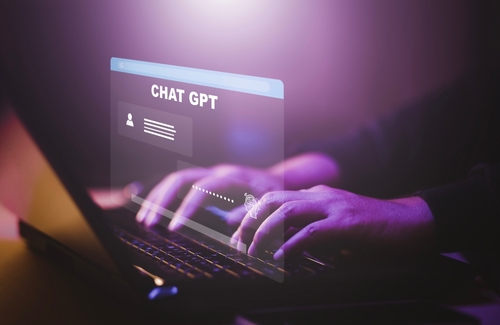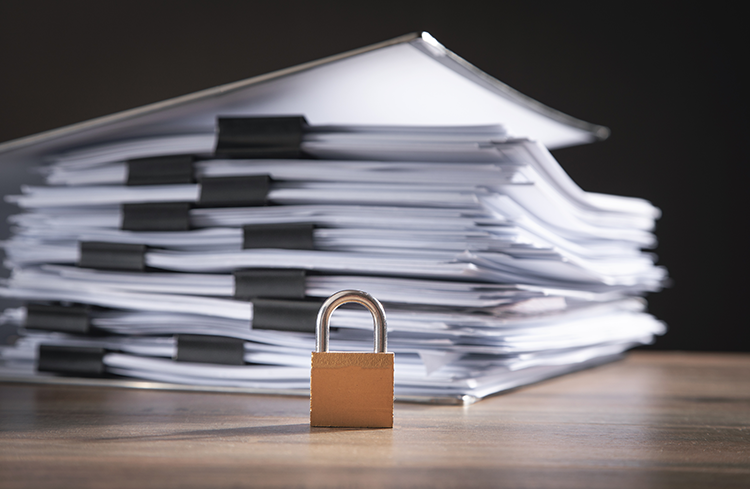This law school is among the 1% that allow use of AI to write admissions essays

(Image from Shutterstock)
Can would-be law students use generative artificial intelligence programs, such as ChatGPT, to write admissions essays? Fifty-four percent of surveyed law schools have no official policy on the issue, according to a survey by test prep company Kaplan.
The Kaplan survey found that 45% of law schools have an official policy banning the use of generative AI to write essays, while 1% allow it.
The findings “somewhat surprised” Amit Schlesinger, executive director of legal and government programs at Kaplan.
“As we see it, in a way, no policy at all may be understood by applicants as a de facto policy of allowing it, which only muddies the waters,” Schlesinger said in an Oct. 8 press release.
Admissions officers at 97 law schools participated in Kaplan’s 2024 survey, including 34 of the nation’s top 50 law schools as ranked by U.S. News & World Report.
The survey also found that 16% of surveyed law schools allow generative AI to brainstorm essay ideas, while another 16% ban it. Fifteen percent allow AI programs to provide feedback on essays, and another 15% ban it.
Above the Law had coverage of the findings.
Kaplan didn’t reveal which schools do and don’t allow ChatGPT. But the Arizona State University Sandra Day O’Connor College of Law has “welcomed prospective law students to use these [AI] tools,” Law.com reported in October 2023.
“Generative AI is a tool available to nearly everyone, regardless of their economic situation,” the law school says on its website. The tool can help prospective students “submit a strong application when used responsibly.”
Amy Beier Best, assistant dean of admissions and financial aid at the Arizona State University law school, told Law.com that applicants still must be truthful.
“Because we are allowing the use of AI in the application process,” she said, “we’re also asking applicants to certify that not only is information entirely in their application true and accurate, but as part of that, [asking whether] they’ve used any tools, whether AI or others, responsibly and ethically in creating their application materials.”
Taking the opposite tack, the University of Michigan Law School announced in July 2023 that applicants must certify that they didn’t use ChatGPT or other AI tools when drafting personal statements and essays.
The University of Michigan Law School planned to police its ban on AI-written essays by comparing the submissions with writing samples from students’ Law School Admission Test, Sarah C. Zearfoss, the law school’s senior assistant dean, told the ABA Journal in 2023.
“We will see essays and think, ‘Yep, this could be ChatGPT.’ Or it could just be a bland essay,” Zearfoss said.
One tipoff that an essay has been generated by ChatGPT is that the final paragraph starts with, “In conclusion,” David Kemp, an adjunct professor at Rutgers Law School, told the Journal in 2023.
Law.com asked ChatGPT to write an “admission essay for law school.”
Law.com noted “flowery language” in its AI-generated essay. It began this way: “As I stand at the threshold of a new chapter in my life, the decision to pursue a career in law feels like the most natural and compelling choice I have ever made.”
The second-to-the-last paragraph began with the words, “In conclusion.”
Write a letter to the editor, share a story tip or update, or report an error.



